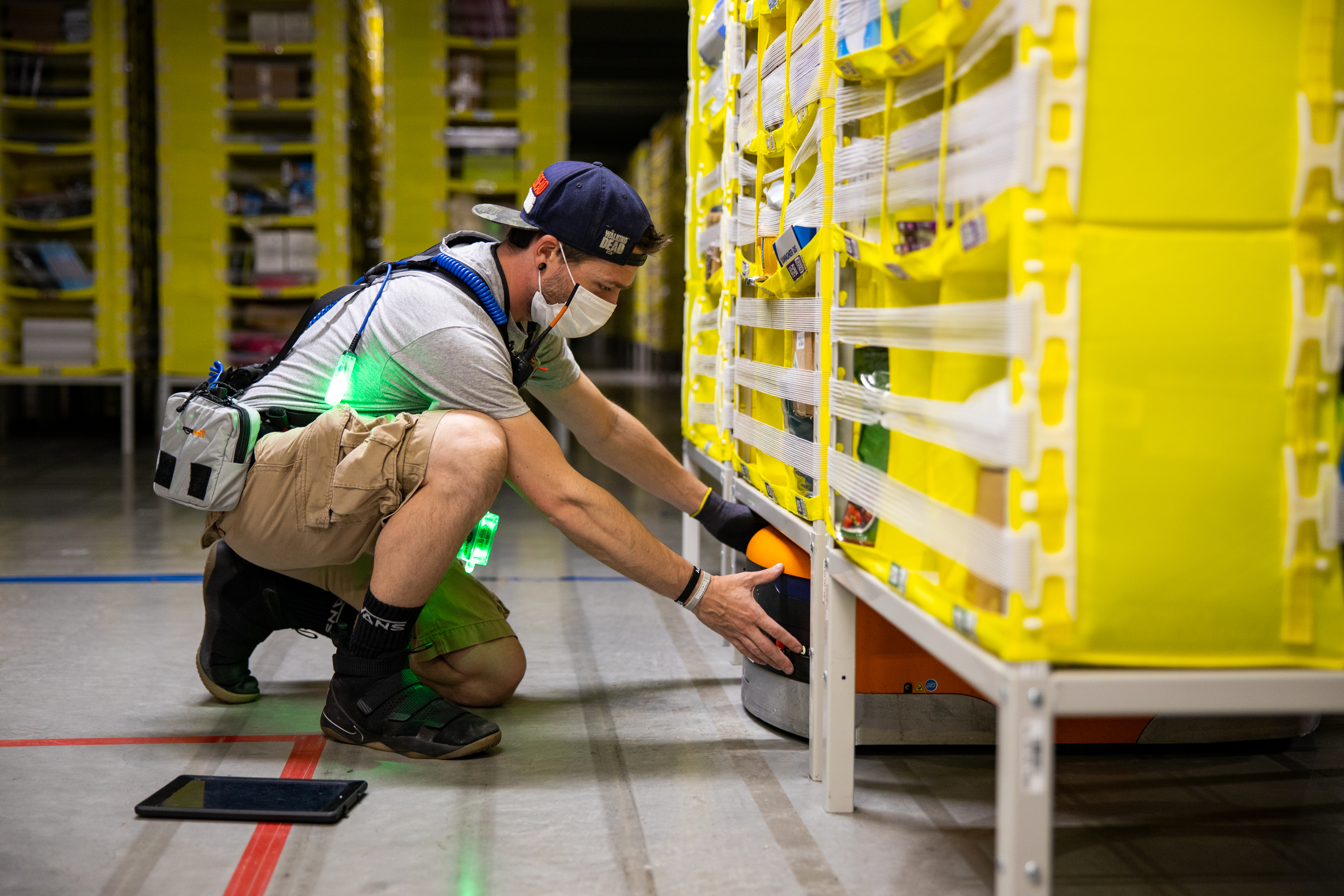Amazon ends marijuana testing for new hires in effort to keep DC jobs filled
Truck drivers will still have to comply with FMCSA regulations, but retailer sweetens compensation for most fulfillment positions.

Under pressure to fill open jobs in its DCs and to fend off accusations of fostering harsh working conditions, mega-retailer amazon.com Inc. will stop screening new hires for marijuana use, announcing Tuesday that it is changing its drug testing policy for warehouse employees and other logistics jobs following the rise of increasingly lenient state laws that have legalized pot for recreational and medical use.
The shift comes as Amazon has seen red-hot growth in e-commerce during pandemic lockdowns as many consumers shopped from home, pushing the Seattle-based company to announce in May that it plans to hire a whopping 75,000 people in its fulfillment and logistics network across the U.S. and Canada to keep up with that expansion.
Despite that goal, the company may have trouble finding enough new workers, since industry groups such as the transportation sector analysis firm ACT Research said in March that the availability of truck drivers had tightened to its fourth consecutive low point for the past three years. According to ACT, constraints on driver capacity include changing demographics as a wave of Baby Boomers retire, unemployment benefits that tempt drivers to stay home instead of braving pandemic work conditions, and a Drug & Alcohol Clearinghouse operated by the Federal Motor Carrier Safety Administration (FMCSA) that makes it more difficult for prohibited drivers to circumvent the system and reenter the workforce.
While Amazon’s new policy will not affect its hiring practices for driving positions, which remain regulated by the U.S. Department of Transportation (DOT), the analysis suggests that growing numbers of Americans are availing themselves of the loosened marijuana laws.
“In the past, like many employers, we’ve disqualified people from working at Amazon if they tested positive for marijuana use. However, given where state laws are moving across the U.S., we’ve changed course,” Dave Clark, Amazon’s CEO for Worldwide Consumer, said in a release. “We will no longer include marijuana in our comprehensive drug screening program for any positions not regulated by the Department of Transportation, and will instead treat it the same as alcohol use. We will continue to do impairment checks on the job and will test for all drugs and alcohol after any incident.”
In addition to ending drug testing for marijuana in the hiring process, Amazon said its public policy arm would actively support federal legislation that would legalize marijuana at the federal level, expunge criminal records, and invest in impacted communities, a potential law known as The Marijuana Opportunity Reinvestment and Expungement Act of 2021 (MORE Act).
Amazon has also announced a number of changes to its workplace conditions, which have generated union complaints and critical media reports about creating unrelenting pressure on warehouse workers to meet strict productivity standards while taking almost no rest breaks.
The company said yesterday it will change its Time off Task policy, which measures the amount of time any employee is logged out of the software tools in their work area. According to Amazon, that metric has been “misunderstood” as being focused on identifying under-performing employees, while its true intent was to reveal problems with the productivity tools that workers use. Accordingly, Amazon said it will now calculate Time off Task by averaging that data over a longer period “to ensure that there’s more signal and less noise” and to better uncover any “operational systemic defects.”
Other ways that Amazon has sweetened the pot for potential hires in recent weeks is by boosting compensation across its fulfillment and transportation networks, offering an average starting pay of over $17 per hour, sign-on bonuses of $1,000 in some locations, and benefits like health, vision, and dental insurance, 401(k) with 50% company match, paid parental leave, and tuition reimbursement.
Editor's note: This article was revised on June 2 to state that the number of failed tests tracked by FMCSA’s Drug & Alcohol Clearinghouse has not increased compared to past levels, but rather that the system is more effective at tracking existing infractions.
Related Articles

Copyright ©2024. All Rights ReservedDesign, CMS, Hosting & Web Development :: ePublishing